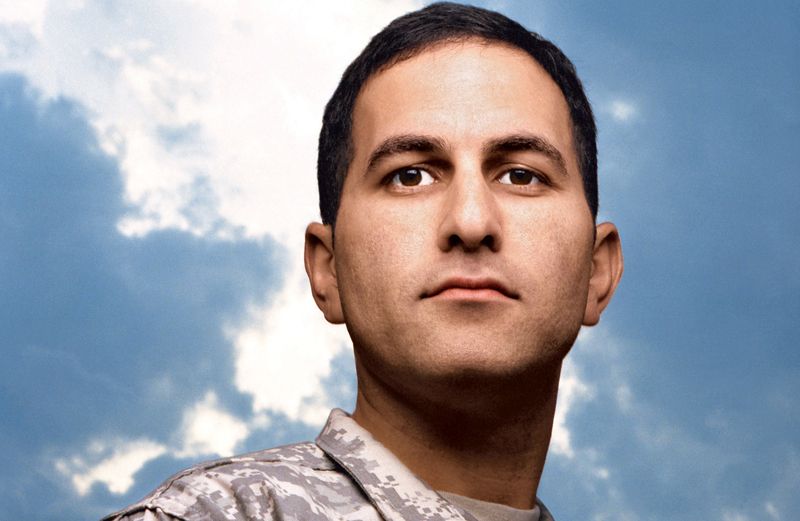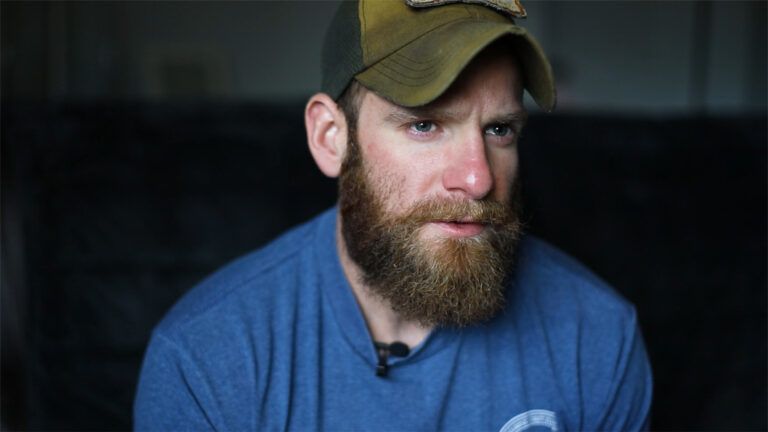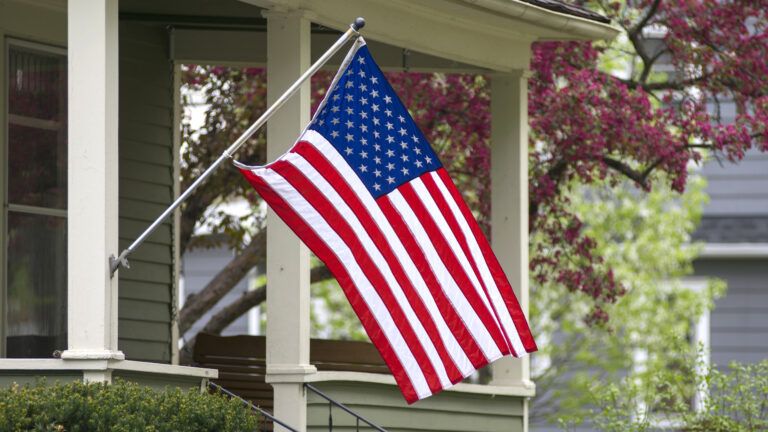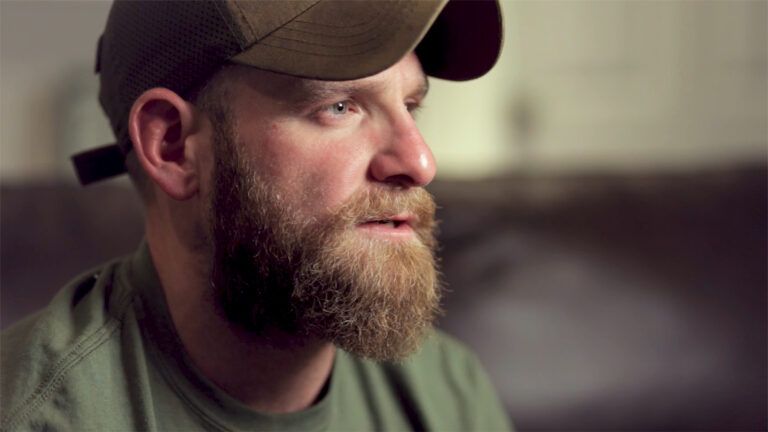I strode into the lieutenant colonel’s office thinking I felt better about myself than I had in a long time. Yes, I thought, this is what I was meant to do.
I was a military chaplain, reporting to the head of pastoral care at Walter Reed Army Medical Center in Washington, D.C.
I was in the midst of helping a family whose son, wounded in Iraq, had died after surgery. I’d stood by the soldier’s bedside then worked feverishly to get his parents and brother to Walter Reed. They were due to arrive in a few hours.
Bring faith and inspiration to our troops! To donate a Guideposts subscription now, click here.
I was keyed up, focused, purposeful, crisp. I felt, in fact, like I had during my own tours in Iraq in 2003 and 2005, alive in a way you can only comprehend when you know your life could be over in a flash.
I’d been home a year now, assigned to Walter Reed. Considering that I’d been diagnosed with post-traumatic stress disorder, I thought I was doing all right, at least at the hospital.
Especially tonight, when it seemed I might have hit on a solution to the depression, anxiety and self-doubt that had settled over me since returning from war.
What I needed, I realized, was a mission, more immersion in heart-pounding work, something to keep my mind totally focused. I could handle PTSD. I was handling PTSD, wasn’t I?
The head chaplain and his deputy, the lieutenant colonel, looked at me searchingly–I assumed because they were eager for my update. I gave a terse, rapid-fire summary, inwardly pleased with how efficient I’d been under pressure.
I knew my superiors were worried about me. Now they’d see what I was made of.
I finished. There was an awkward silence. “Chaplain Benimoff,” the deputy finally said, “do you realize how anxious you are at this moment?”
His words took me aback. I looked down. My uniform was soaked with sweat. My feet were shuffling restlessly. I felt my eyes darting everywhere–just like they had in Iraq, searching for danger, on alert. I tried to stay focused. “Ah, sir, I believe I’m okay,” I said.
The head chaplain, a colonel, regarded me. “Chaplain,” he said softly, “this soldier’s family will be here in a few hours. Are you ready to meet and escort them?”
I tried to breathe deeply, speak normally. “Yes, sir.”
“You’ll be with them when they view their son’s body. Are you prepared for that?” I looked at his face. He was a pastoral, caring man, but both he and I knew the answer to that question.
Struggling to keep hold of myself, to suppress images of the men I’d seen die in Iraq, to keep my swirling emotions from bursting out in tears, I shook my head. “No, sir, I suppose I’m not.”
“Okay,” said the colonel, “we’ll assign someone else. You’ll be on call tonight, but your work is done for now. Why don’t you try to get some rest?”
Stunned, feeling as if I’d been punched, I staggered from the office. We’ll assign someone else. What the colonel really meant was, You’re not up to doing your duty, Chaplain Benimoff.
Standing with a family after the death of a soldier was one of the most basic functions of military chaplaincy. If I couldn’t do that, what was I here for?
I found myself climbing stairs, searching for someplace quiet. What was happening to me? Yes, serving in Iraq had been tough–I’d been shot at, counseled anguished soldiers and recited Scripture over the bodies of men I’d come to know and love.
But that’s what the job was. Why couldn’t I put the war behind me, move on? I was a man of faith. Right? Faith.
I peered through a stairwell door into a deserted passage and slipped in. I definitely talked a good game when it came to faith. My job was all about faith. But what did I really believe?
I knew how my wife, Rebekah, would answer that question. I’d stopped going to church with her and our two boys soon after coming home from my second tour. Churches were full of people. The crowds made me anxious. The sermons made me mad.
All this talk of God’s compassion, God at work in the world. Was he at work when men in my regiment were blown apart by roadside bombs? Killed by a grenade–while guarding a hospital?
Was it God who’d let me sink so low emotionally that I could barely tolerate the company of my own family?
Click here to learn more about Veterans Awareness Month and what you can do to help.
My seven-year-old, Tyler, had diabetes. I couldn’t keep myself together enough to help Rebekah monitor his insulin. Heck, Rebekah and I barely talked. Most days at home I retreated to my computer, unable to face her or anyone else who hadn’t seen what I’d seen in Iraq.
What was the point of housework or playing with the kids in the park when soldiers were suffering and dying?
“Just shut up and go away!” I yelled once after Rebekah asked me to go sightseeing with her in Washington, D.C.
No, God was not watching out for my family–or so I thought. I hardly prayed. I sometimes wondered, was all that stuff I’d learned in seminary true? Or just a comforting illusion for people never exposed to the horrors of war?
I certainly wasn’t going to ask God to help me with PTSD. Why pray into a void?
I sank into a chair along one wall of the corridor. Above, fluorescent lights cast a steady, impersonal glare. It was silent, the silence of a vast building after hours. I put my head in my hands.
No, I hadn’t asked God to help me. And now, sitting here alone, I realized what I’d done instead. I’d gradually persuaded myself I could get over PTSD alone, through sheer force of will.
I’d already spent time in a treatment center, seen a psychiatrist, taken medication. I hadn’t known whether it was working–certainly, nothing had changed at home.
But tonight I’d thought I was making headway. Maybe I could at least be functional again. Regain the competence, the sense of usefulness I’d had in Iraq, the urgency and immediacy that war compels.
Of course, that was an illusion. That’s what the colonel had meant.
Something made a choking sound and I realized it was me, sobbing. I sobbed and sobbed, feeling at the end of my rope. If I couldn’t help myself, what hope was left?
My mouth moved, talking in the midst of the tears. I didn’t even know what I was saying until I caught the words, “I need you, God.” Startled, I said them again: “I need you, God.” And then over and over, a desperate prayer, words I thought I’d given up believing.
The more I said them, the calmer I felt. The sobbing stopped. I wiped my nose and looked around. The corridor was unchanged. Nothing spoke to me, I heard no answer. But I felt as if some terrible crisis had passed.
I got to my feet and dragged myself through the hospital to a sleep room for chaplains. I lay down and closed my eyes. In seconds I was asleep.
Things didn’t change immediately after that. But as weeks went by, I realized I was changing. Imperceptibly at first, then with gathering urgency, I began thinking about a basic Christian concept I’d utterly lost sight of: grace.
One day, out of the blue, Rebekah strained her back and could barely hobble to lie down on the sofa. “Let me take care of you,” I blurted. To my amazement, I found myself bustling around the house, bringing her food, getting the boys ready for bed.
What a lot of work! I thought–and immediately I was angry at myself, ashamed at the immense burden I’d been forcing Rebekah to carry.
The anger nearly boiled over. But then I remembered: grace. I didn’t have to be perfect to try, didn’t have to solve everything all at once. I brought her some pain medication and a glass of water. She took them with a look of wondering relief.
Grace began turning up at work too. A soldier partially paralyzed by a bomb blast told me he felt angry, unbalanced. I was all set to agree when he added, “But my fiancée is helping me, and my psychologist. And I’m real close with God. I talk to him every day.”
I met another soldier who’d grown up in an area so violent, Iraq had just seemed like more of the same. Though one of his legs was shattered, he told me he was thinking of going back to church. He hadn’t been since he was a kid.
Why, I wondered, figuring he could just as easily have been one more soldier abandoned by God. “I could have died,” he said. “I was very lucky.”
I was too. Not simply to have survived Iraq, but to have received from God, even as I was rejecting him, a lifeline of grace.
It wasn’t just that moment of prayer in the hospital corridor. It was a slow, sometimes painstaking relearning of one of faith’s central, indispensable lessons–that when all seems lost, simply needing God is enough.
I’d ground myself down trying to fix my own soul, tortured myself with impossible questions. All along, the answer was four simple words: I need you, God. Even when I thought I might be grasping at nothing–that’s when I needed him most.
Today, two years after my return from Iraq, I’m still healing from PTSD. With Rebekah’s support, I recently decided to leave the military chaplaincy and take a position at a civilian hospital.
Things are much better at home. Rebekah and I watch movies together on the sofa some nights and I’ve learned how to monitor Tyler’s insulin, but we’re still working at regaining the intimacy we had before Iraq.
Still, I’m hopeful, ready to learn the new mission God has in mind for me. I don’t know the whole plan. But I do know that it starts with need and ends with grace.
Click here to donate gift subscriptions to Guideposts Military Subscription Program.







